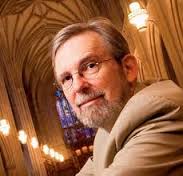8) One of the issues often raised about Matthew is the difference between prediction and fulfillment, the latter being a much larger category of things. So when Matthew says Is. 7.14 is fulfilled in the story of Jesus, would you take him to mean that it was predicted in Isaiah, or that Isaiah simply said more than he realized, speaking to his own immediate audience, and so Christ is a filling out of the story and a fulfilling of it that would go beyond the original intended meaning, but not against it?
***I would lean strongly to the latter interpretation. Note that we should make a distinction between the author’s intended meaning (what Isaiah meant to say) and the meaning intended by God (which may go beyond the human author’s conscious knowledge or intention: see Heb 1:1).
9) Sometimes Scriptural language is used to invest an event with extra weight, without in fact alluding to the larger context of an OT quote where the language first appears. A good example of this would be John Wesley’s use of the phrase ‘a brand plucked from the burning’ to describe his rescue from the fire in the parsonage at Epworth. Now Wesley spoke Biblese, and this is a good example of using a pregnant phrase from Zechariah, and applying to his own experience. Was he suggesting, go back and look at the larger context of that saying and you’ll better understand my spiritual journey? I don’t think so, so here comes the question. How does one tell when metalepsis is happening and when it isn’t when Scriptural language is used in the NT to speak of an event the prophets may never have dreamed of?
***The test simply comes in the reading. Try out the hypothesis of metalepsis and see if it proves illuminating. Often it will (example: Matt 2:17-18). Sometimes it won’t. The ability to distinguish between such cases is part of the art of reading well.













